Matthew Oliver
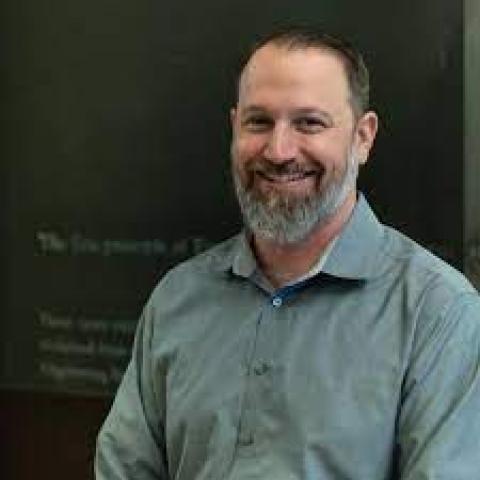


Dima Nazzal is a Principal Academic Professional in the H. Milton Stewart School of Industrial and Systems Engineering at Georgia Tech. She is responsible for project-based learning in the Industrial Engineering undergraduate curriculum, including the capstone senior design course, and the cornerstone junior design course. She is also research director of the Center for Health and Humanitarian Systems. Prior to joining Georgia Tech, she was Director of Research and Development at Fortna, Inc., an Engineering Design and Consulting company.
Research: Her research focuses on modeling, design, and control of discrete event logistics systems, including healthcare delivery systems, manufacturing systems, and distribution systems. Her recent work has focused on election voting systems, higher education response to COVID-19, understanding and driving higher childhood vaccination rates in developing countries, modeling of collaborative robots in distribution systems; scheduling and dispatching policies in semiconductor manufacturing, and energy systems development. She has worked with companies, non-governmental organizations, and healthcare providers, including ExxonMobil, Emory University, Samsung, Emory University, Gates Foundation, and Walt Disney World. See here for relevant publications.
Teaching: Dr. Nazzal enjoys teaching courses in manufacturing, warehousing, and facility logistics system design and operations, as well as advising senior design teams. She is the recipient of multiple teaching awards including the Georgia Tech Women in Engineering Outstanding Teacher Award in 2015, and the Most Outstanding Faculty Member Award from the University of Central Florida IIE Student Chapter in 2011.
She received her Ph.D. in Industrial Engineering from Georgia Tech in 2006, her M.S. in Industrial Engineering from the University of Central Florida, and her B.S. in Industrial Engineering from the University of Jordan.

Johannes Milz is an Assistant Professor in the H. Milton Stewart School of Industrial and Systems Engineering. His research focuses on optimization under uncertainty and optimal control of uncertain systems, with a strong emphasis on sustainability applications. By addressing large-scale optimization challenges in physics-based models under uncertainty, he aims to contribute to the development of sustainable energy systems, such as renewable tidal energy farms. Dr. Milz is also dedicated to open science; he develops reproducible numerical simulations and shares them publicly, making his results accessible to a broad group of researchers and practitioners. Prior to joining ISyE, he was a postdoctoral researcher at the Technical University of Munich, where he earned his Ph.D. in Applied Mathematics in 2021.
Resource assessment and design of renewable marine energy systems, especially tidal energy.

Dr. Akanksha Menon is an Assistant Professor in the Woodruff School of Mechanical Engineering at Georgia Tech. Prior to this, she was a Rosenfeld Postdoctoral Fellow at Lawrence Berkeley National Laboratory, where she performed research on hybrid membrane-thermal desalination processes using solar energy, and she also contributed to the development of thermal energy storage materials. Dr. Menon completed her Ph.D. at Georgia Tech, where she focused on developing semiconducting polymers and new device architectures for thermoelectric energy harvesting. She holds a bachelor's degree from Texas A&M University at Qatar, as well as a master’s degree in Mechanical Engineering from Georgia Tech.
Her research group at Georgia Tech is working on technologies for the water-energy nexus.

The Strategic Energy Institute is excited to welcome Scott McWhorter as a 2023 Distinguished External Fellow. Scott will co-lead the concept development, visioning, partnership, and preliminary capture activities for Georgia Tech on the Department of Commerce Tech Hubs (“Hubs”) and expand Georgia Tech’s hydrogen activities and stature.
Scott is not new to the Georgia Tech campus and has previously worked with Dan Campbell of the Georgia Tech Research Institute (GTRI) on developing trace organic optical sensors based on evanescent waveguides. More recently, Scott worked with David Sholl (professor in the School of Chemical and Biomolecular Engineering at Georgia Tech through 2021), to develop the RAPID (Rapid Advancement in Process Intensification Deployment) Institute and then through his work with Southeast Hydrogen Energy Alliance (SHEA), started working with Comas Haynes of GTRI on hydrogen, where they brought together the ecosystem that was responsible for at least three hydrogen hub efforts in the South East.
Scott's work related to energy in his own words:
My career has always related to energy even when I didn’t notice it. I started out in DNA microchips where we tried to understand the various aspects of fluidics (mass transport, thermal, and surface science) that influenced efficient separations. Using the tools from those efforts I transitioned into optical sensor development to monitor trace gases from the gas-solid catalyst interface in a fuel cell electrode to an unknown-unknown contaminant that might cause a failure mode in a weapons system. Over the past decade, my work in energy has focused namely on building partnerships in industrial manufacturing consortia (ManufacturingUSA Institutes) where I helped form both CESMII and RAPID and then focusing on developing technologies to solve the hydrogen storage and delivery challenges through either more efficient, energy dense solid-state storage or using electro magnetics to efficiently provide heat to catalysts to decompose a hydrogen carrier or plastic.
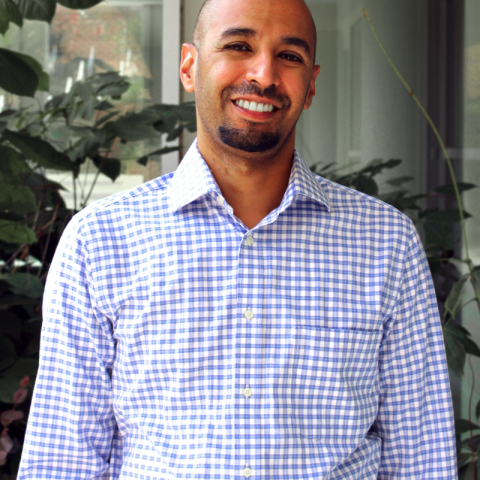
Dr. Anirban Mazumdar joined Georgia Tech as an Assistant Professor in Mechanical Engineering in 2018. Dr. Mazumdar studies robot mobility with the goal of understanding and achieving agile, versatile, and efficient robot behaviors in unstructured environments. His previous experience includes a postdoctoral research position in the High Consequence Automation and Robotics Group at Sandia National Laboratories in Albuquerque, NM. He has broad experience with novel robotic systems including energy efficient bipedal robots, reconfigurable aerial vehicles, prosthetic devices, and relaxed stability mobile robots.
Mobile Robots; Human Performance; Autonomy
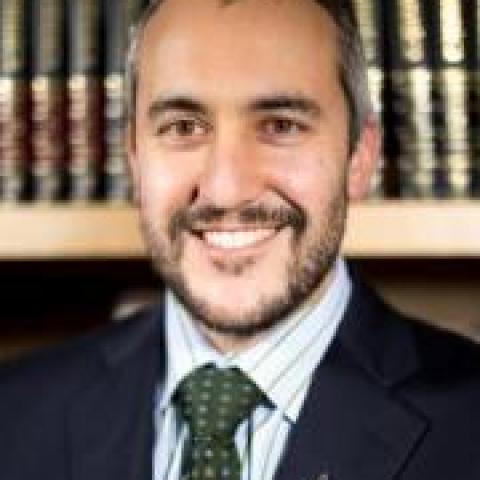
Dr. Mayor is a distinguished expert in thermal sciences, electro-mechanical machine design, and micro-manufacturing. As the inventor of the DwHX cooling technology for electric machines, he specializes in the research and development of advanced power electronics cooling, electric machine design, micro-power generation, and sustainable energy systems. Alongside his technical pursuits, Dr. Mayor has a rich entrepreneurial backdrop, having navigated product-oriented tech startups and led multiple advanced research and development programs. His expertise is sought in IP litigation, where he serves as a technical authority.
He has presented keynotes and seminars on diverse topics, from micro-manufacturing and electric machines to energy systems. He teaches courses in mechanical engineering courses at Georgia Tech, including machine design, manufacturing processes, design thinking and internal combustion engines, including H2ICE, and has taught courses as a visiting lecturer in China, France, Saudi Arabia, and South Africa. He has a substantial academic contribution with over 120 publications in leading archival journals and conferences and is a member of ASME and IEEE and SME.
Dr. Mayor's commitment goes beyond teaching and research as he engages in service as the Secretary of the Faculty. He strives to build on the learnings from the pandemic to expand the resourcefulness, understanding, and trust in shared governance. Moreover, Dr. Mayor serves as the faculty advisor for the Student Competition Center, further highlighting his commitment to student mentoring and leadership development. He looks forward to implementing AI in a robust manner in institute learnings, as a core capability in education.
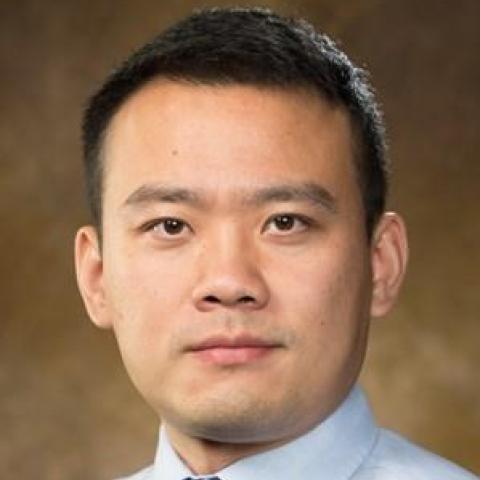
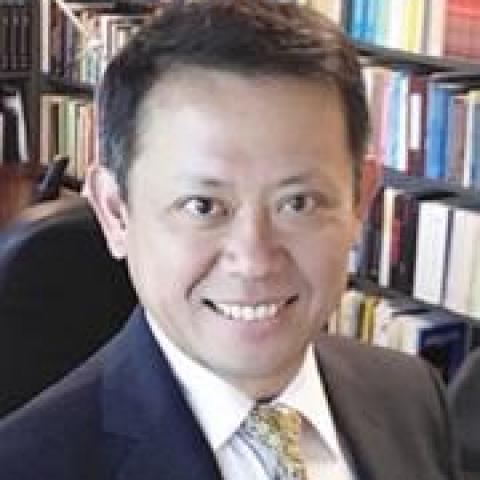
Dr. Liang began at Tech in 1990 as an assistant professor. Previously, he was an assistant professor at Oklahoma State University. He was named to the Bryan Professorship in 2005. He was President of Walsin-Lihwa Corporation in 2008-2010.
Manufacturing and Automation and Mechatronics; Modeling; monitoring; control of advanced manufacturing processes and equipment.

Tequila A. L. Harris is a Professor in the George W. Woodruff School of Mechanical Engineering, and is the director of the Highly Advanced Roll-to-Roll iManufacturing Systems (HARRiS) group. Her research focuses on investigating the fundamental science associated with manufacture of polymer thin films from fluids (e.g., solutions, dispersions, slurries, etc.) as they are coated onto permeable or impermeable surfaces to make components or devices. She explores the connectivity between thin film functionality, based on their manufacture or structure, and their life expectancy, to elucidate mechanisms by which performance or durability can be predicted. In addition to conducting computational analysis, developing analytical models and running experiments, Harris also develops new manufacturing technologies to fabricate thin films, in wide area or discrete patterns. Target applications are well-suited for a variety of industries including food, energy, electronic, and environmental systems to name a few. In conjunction with her research activities, she is committed to the education, mentoring, and advisement of students towards scholarly achievements. She has published over fifty peer-reviewed articles. Harris has several awards including the National Science Foundation's young investigator CAREER Award and the Lockheed Inspirational Young Faculty Award.
Additive/Advanced Manufacturing; Flexible Electronics; Polymers; micro and nanomechanics; Thin Films; Electronics; Energy Storage; Thermal Systems; Manufacturing and Fluid Mechanics; Polymer processing; mechanical system design; fluid flow; mechanical and physical property characterization of thin film